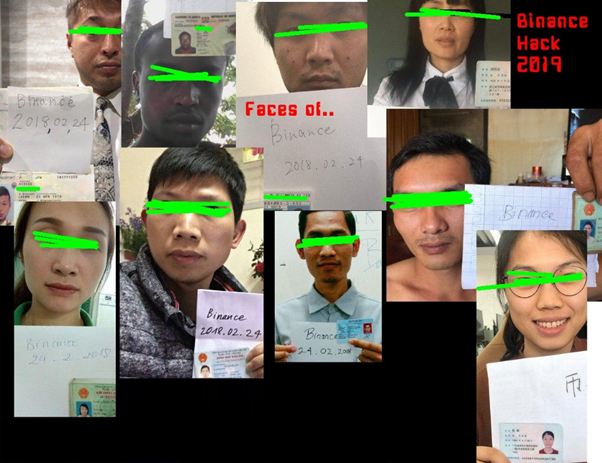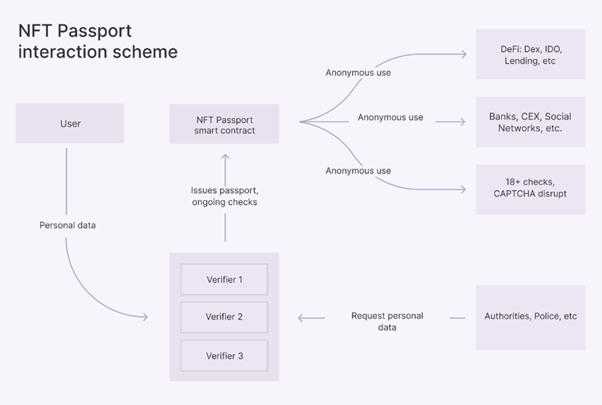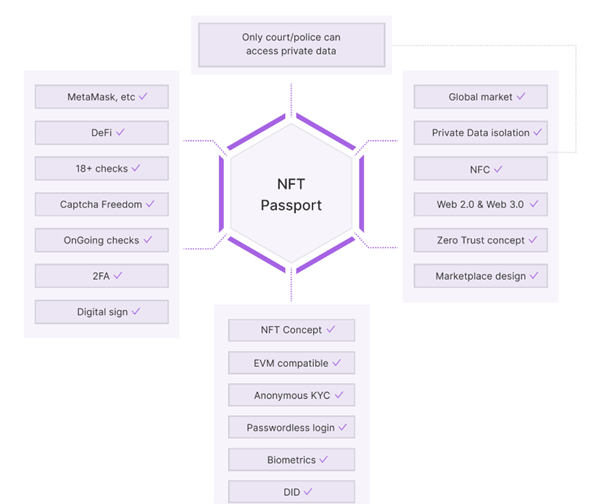It became a blocker to cryptocurrency adoption in traditional financial markets. However, the abandonment of confidentiality is incompatible with the fundamental concept behind digital assets. It was necessary for both the regulators as well as cryptocurrency users to reach a compromise. This is already the solution. Let’s dive deeper and learn how to remain anonymous in the crypto market without breaking a single law.
What does KYC have to do about cryptocurrencies and how can it be used?
KYC is an abbreviation for Know Your Customer. In the context of financial markets, this term is frequently used. KYC can be described as a series of steps that aim to determine the identity and intent of the individual who intends to perform a financial transaction.
The covenant made by Satoshi Nakamoto to create cryptocurrencies should make them anonymous. From regulators’ point of view, fully confidential transactions carry risks associated with money laundering, terrorist funding, and other illegal activities. That is why governing authorities need to pipe cryptocurrencies’ users through KYC procedures.
Crypto market participants are also interested in having convenience for all parties — users and regulators — relating norms for person identification. The fact is that the government cannot permit the spreading of anonymous financial instruments they do not have control over due to their confidentiality.
Following the KYC procedure to transact with cryptocurrency can be seen as an open-ended process. Members of the crypto community can carry out transactions using digital assets and regulators can control such deals. Users must waive their anonymity.
What’s wrong with KYC within the cryptocurrency industry?
Major crypto projects including exchanges aspire to be legal entities. For that, they need to be regulators’ “friends”. When it comes to cryptocurrency, the best way to win trust from governing agencies is to comply with KYC requirements.
In the crypto industry, the standard identification verification process involves several steps.
- Personal data provided to third parties (platform where registration is made) including surname, address, and country of residence.
- Providing documents to confirm the user’s identity.
Platforms may also ask for users to snap a picture with a document supporting it.
Interesting! A lot of crypto projects make it easy for users to undergo KYC. They also have limits. For instance, certain trading platforms have lower operational limits for those who are not yet verified.
The KYC database might be used by representatives of cryptocurrency projects to collect identity supporting documentation scans, or magnets that can help fraudsters. The result was that cryptocurrency platforms were targets of wrongdoers.
The practice has shown that even major players can not safely maintain their clients’ KYC data. For example, in 2019 verification documents of Binance’s users were leaked to the internet. At first, the trading platform’s representatives denied the leakBut they were forced to admit it when photos of clients were uploaded.

The “apologetic” response of Binance’s team was to offer victims a lifetime VIP membership. Many market participants feel that the response was unfair to people who were vulnerable due the platform’s vulnerabilities. However, fraudsters may use KYC and photos for the purpose of theft or other illegal activity.
Such incidents bear heavy cost to the companies’ goodwill. Modern organizations are able to avoid these failures.
How do you fix the KYC problem?
As a result, the KYC requirements for cryptocurrency cannot be waived. Without KYC, the traditional financial system would remain unintegrated with cryptocurrencies. However, market experience suggests that third-party verification and photographs of documents may be risky. The Czech company Hashbon offered a solution. The Czech company Hashbon was the first team to create the digital passport Hashbon Pass (NFT Passport). This is how it works
- An NFT Passport user transfers his personal data to an approved group of licensed verifiers.
- The digital NFT Passport is issued by the Verifiers after a thorough check. Reminder: The information on the blockchain is permanently stored in the format of a non-fungible token. This technology ensures that the Register is protected against falsification. Therefore, Hashbon Pass NFT passport data cannot be falsified. This ensures the authenticity and reliability of verification records.
- Hashbon Pass, the owner of the digital passport can show the document to verify it on any platform that follows KYC guidelines. In this case, third parties will have no access to the users’ confidential data, and an NFT Passport doesn’t have any personal info from the document submitted. The NFT Passport will verify the identity and be provided to the service.
Hashbon Pass allows anonymous use of cryptocurrency platforms. This includes projects within the Decentralized Finance Segment (DeFi). NFT Passports are also useful for confidential identification verification when working with traditional financial platforms like banks. The Hashbon Pass can also be used to confirm anonymous legal age and bypass CAPTCHA.
NFT Passport Issues and Use Cases

Interesting! For example, for regulatory purposes, agencies of government can ask verifiers to provide KYC data.
The following is a list of the problems the NFT passport Hashbon Pass fixes:
- Security against the leakage of personal information to third parties
- Save time: Instead of filling out registration forms, Hashbon Pass Holders can simply present their NFT Passport.
Hashbon Pass Opportunities
Hashbon Pass seems to provide anonymous and totally safe KYC identification verification. It is available in both the traditional and decentralized finance markets. A partnership with Hashbon Pass is a great way to simplify verification and safeguard clients against data breaches. These factors add to their appeal.
The launch of Hashbon Pass will take place at the end June 2022. Become the project’s partner to be among the first to offer clients an easy and safe way for anonymous KYC verification. Keep up with the latest updates, and ask for a demonstration on the Hashbon official webpage.
